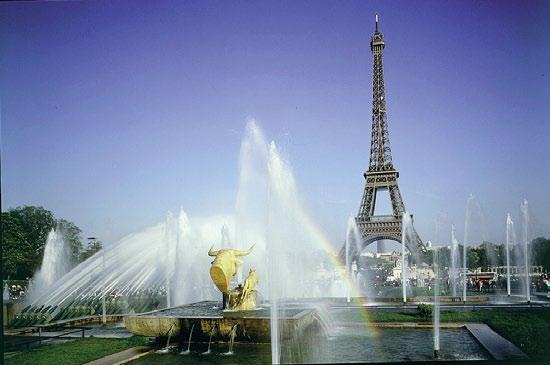
4 minute read
Focus on France Ian Sparks reports from Paris
euRo-RePoRT
foCus on... France
Ian Sparks reports from Paris on the fall of an industry titan.
French car giant Renault has been plunged into chaos this month after its chief executive Carlos Ghosn was arrested on suspicion of spending almost €16 million on luxury property using money from Japanese car-maker Nissan, where he is also chairman.
The French government – which has a 15 per cent stake in Renault – has called this month for an ‘interim governance’ structure to be put in place at the company while Ghosn’s financial dealings are investigated.
Meanwhile, shares in both car companies plunged following Ghosn’s arrest in Tokyo on November 19. Nissan CEO Hiroto Saikawa has announced that after a months-long investigation prompted by a whistleblower Brazilian-born Ghosn would be dismissed for ‘significant acts of misconduct’ that allegedly included under-reporting his salary and using company assets for personal benefit.
The Japanese media reported that Nissan had provided Ghosn with houses in four countries where he had ‘no legitimate business reason to reside’.
Ghosn, 64, also serves as chairman of Mitsubishi Motors, and became one of the world’s leading industry tycoons after helping forge an alliance between the three companies to create the world’s biggest car seller.
The disgraced executive is accused of spending three million euros on a sprawling penthouse apartment in Tokyo, and millions more on sumptuous homes in Paris, Amsterdam, Rio de Janeiro and Beirut.
After his arrest for financial misconduct, his ex-wife Rita Ghosn has shared a Facebook post declaring ‘all narcissists lie and abuse behind closed doors’.
French Finance Minister Bruno Le Maire told France-Info that Ghosn is not in a position to lead the Renault Group because of the accusations. He urged the board to hold an emergency meeting to strip Ghosn of his CEO title, and hand control to his number two, Thierry Bollore. But Le Maire added that the authorities had examined Ghosn’s tax situation in France and found no wrongdoing.
In Paris, Renault’s senior executives were reported to have pledged their full support to Ghosn, while the Lebanese government said it would stand by him, with foreign minister adding: “Carlos Ghosn is a Lebanese citizen who represents one of the Lebanese successes abroad and the Lebanese foreign ministry will stand by him in his adversity to ensure he gets a fair trial.”
Ghosn’s fall from grace has now led to speculation about the future of the alliance between Renault, Nissan and Mitsubishi. Le Maire and Japanese Economy, Trade and Industry Minister Hiroshige Seko are said to have spoken by telephone to ‘reaffirm the strong support’ of both governments to the union, which they described in a joint statement as ‘one of the greatest examples of Franco-Japanese industrial cooperation’.
But in Tokyo, national media network NHK said Nissan had paid ‘huge sums’ to buy and maintain luxury residences for Ghosn in Beirut, Paris, Amsterdam and Rio de Janeiro that were not for legitimate business reasons.
The purchases were not declared in stock market filings, while Ghosn was underpaying or not paying rent, NHK alleged. It also accused Ghosn, who was in charge of paying Nissan’s top 13 executives, of secretly siphoning off some of that money for himself.
le cost-cutter
Ghosn graduated as an engineer in Paris in 1974, and began his career in 1978 at Europe’s biggest tyre maker Michelin where over 18 years he rose to plant manager in Le Puy-en-Velay, France, to chief operating officer for Michelin North America.
He joined Renault as an executive vicepresident in 1996, and forged the alliance between Renault and Nissan three years later, then becoming Nissan’s fourth nonJapanese chairman.
He won many admirers during his long career as one of the world’s leading auto executives, winning praise for his cost-cutting and vision to promote electric vehicles and low-cost vehicles. But he also attracted critics for his high salary, with shareholders voting down his pay in 2016, although the vote was nonbinding. Only by agreeing to a pay cut did Ghosn get shareholders’ approval at an annual meeting in Paris in June.
In Japan this month some industry experts questioned whether Ghosn was being treated in the same way that a Japanese executive might be treated in similar circumstances in a country where prosecutors have been criticised in the past for being too soft on home-grown politicians and corporate executives accused of wrongdoing, and too harsh on foreigners.
Ghosn is currently in custody in Tokyo, where he can be held for up to 23 days before being charged. If bail is granted, it would be ‘exorbitant, in hundreds of millions of yen’, or millions of dollars, according to Tsutomu Nakamura, a former prosecutor at the Tokyo District Public Prosecutors office. But in major cases like this, ‘often no bail is granted until after the arraignment at the first court session’.
Falsifying corporate annual reports, which Ghosn and Nissan Representative Director Greg Kelly are accused of, carries a maximum penalty of up to ten years in prison and/or a fine of up to 78,000 euros, under the Financial Instruments and Exchange Act.
Nobuo Gohara, the head of a law firm specialising in compliance, said he had not heard of a previous case in which a false statement regarding directors’ compensation in a securities report had resulted in such a punishment.
He wrote in a blog post: “There is a question whether this case should be charged as a criminal one.”
Japanese Chief Cabinet Secretary Yoshihide Suga told the media: “It’s extremely regrettable. We will watch developments closely.” n










